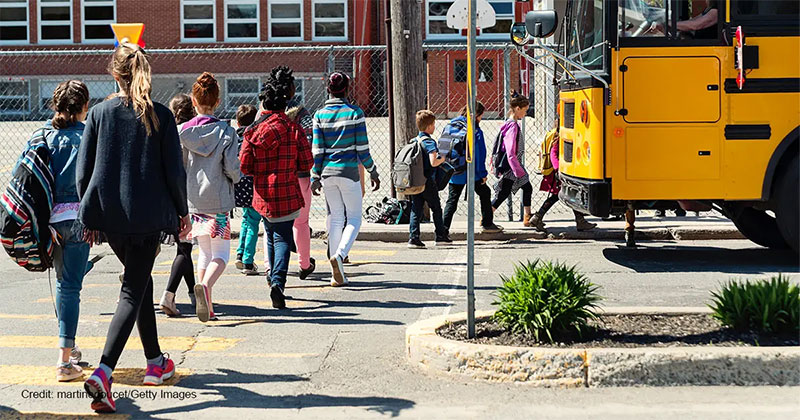
This summer, students aren’t the only ones dreading going back to the classroom. According to staggering enrollment data, parents appear to have had a case of back-to-school blues over public education since COVID’s onset in early 2020. In the past two years, a mass exodus of over 1.2 million students has left the public school system as parents seek alternative education routes, such as public charter schools, private schools, and homeschooling.
In particular, major American cities have seen a notable decline in public school enrollment. For example, New York City is experiencing “massive hemorrhaging of students,” according to Mayor Eric Adams, the NY Post reports. Having lost upward of 64,000 enrollments since the start of the pandemic, the city is forecasting the loss of an additional 30,000 students this upcoming fall semester. On the other hand, NYC charter school enrollment has seen an uptick. Elsewhere in the country, Michigan is still 56,000 students shy of its pre-pandemic public school enrollment numbers. Orange County, Denver, Kansas City, and Chicago, are just a few of the many more cities around the country realizing nose-diving numbers.
Through the pandemic and the transition from classrooms to virtual learning, many parents became disillusioned with their local public schools. For some, they believed the school’s handling of the pandemic was unsatisfactory, due to lockdowns, which inconvenienced many families, as well as masking and vaccination policies. Others were unhappy after taking a closer look at their local public school curriculum and wanted more say in what their children were learning.
Loudoun County, Virginia has been a prime example in the media over the past few years of local school boards pushing gender ideology, sexualized reading materials, and critical race theory in classrooms. Many national headlines have followed parents pushing back on the Loudoun County school board time and again in a struggle over children’s educations.
Meg Kilgannon, FRC’s senior fellow for Education Studies, gave her take to The Washington Stand. “There are more and more challenges for public school systems across the country: teacher shortages, medical overreach, falling test scores, disciplinary issues, and even violence. Add to that the fact that parents rightly felt betrayed not only by prolonged closures in some regions, but also by overly political and sexual content in curricula.”
Kilgannon outlined her analysis of why the drastic drop in public school enrollments: “Parents who engage at school board meetings demonstrate a version of protest; removing your children from public school altogether is another. Voting with your feet sends a powerful message. And we need to make sure that even though our kids might be gone, our voices and worldview are still represented in the system.”
If not public school, where are Americans turning for education? Ginny Gentles, director of the Education Freedom Center at Independent Women’s Forum, explains the demand for education alternatives and school choice. “When parents realized that government schools prioritized unions and activists over students, they chose other education options,” Gentles told TWS. “Public school enrollment is plummeting, especially in the urban areas that abandoned children during the pandemic. Parents are flocking to alternative options, with charter school enrollment increasing by 7%, Catholic school enrollment increasing by the largest amount in 50 years, and parents exploring an array of homeschool options.”
With midterms in the near future and the issue of school choice in the viewfinder for voting parents, many expect education to be a driving factor in upcoming elections. The election of Governors Glenn Youngkin (R-Va.) and Ron DeSantis (R-Fla.) have shown that parents have concern about what goes on in the classroom, and they will vote accordingly. With declining public school enrollment and satisfaction, Americans are hitting the polls with their kids’ education at the forefront of their minds.
-------------------------------
Marjorie Jackson is a reporter for The Washington Stand and FRC's Digital Media Specialist.
















